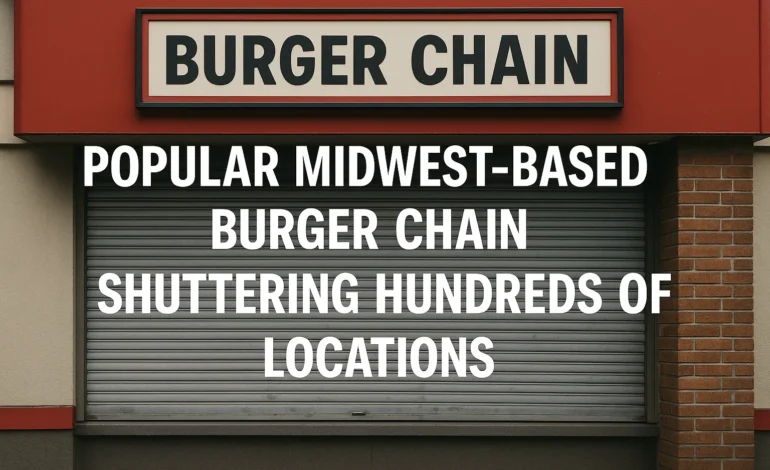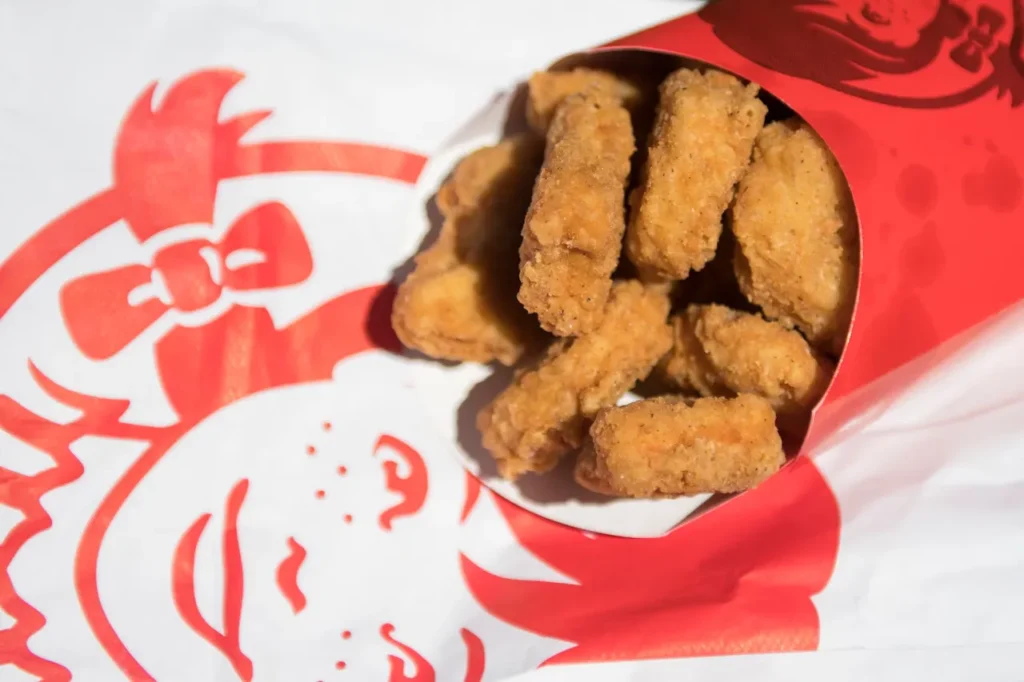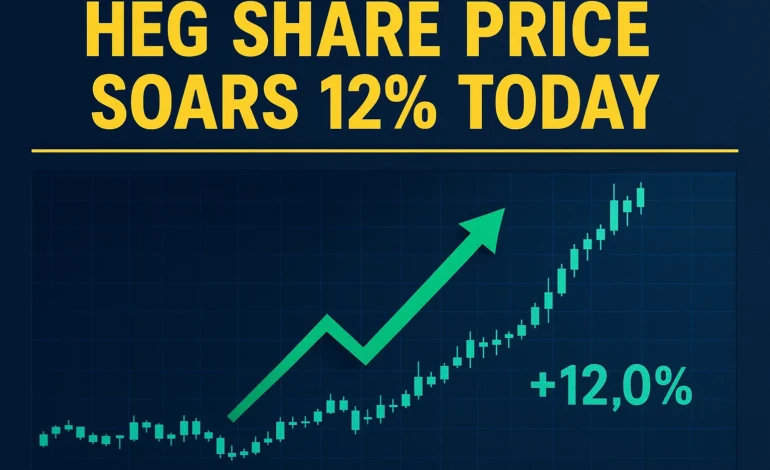
Table of Contents
Hamburger chain restaurant closures are reshaping the American Midwest as major brands confront a perfect storm of inflation, slumping foot traffic, and fierce competition. This wave of shutdowns represents one of the most significant contractions in fast-food history, with hundreds of burger locations vanishing from the region.
The trend signals deeper structural challenges in quick-service dining, where consumer spending power has weakened and operational costs have spiraled beyond sustainability for many franchisees.
The Scale of Shutdowns: Numbers That Matter
The hamburger chain restaurant closures hitting the Midwest are staggering. Wendy’s, the second-largest quick-service burger chain by revenue, announced plans to shutter 200 to 350 U.S. locations starting in late 2025 and extending into 2026. That mid-single-digit percentage of its 6,000 U.S. restaurants translates to roughly 300 stores nationwide, with the Midwest bearing substantial impact. Wendy’s interim CEO Ken Cook revealed the plan during the company’s November 7 earnings call, citing underperforming units that “do not elevate the brand.”
Meanwhile, Wahlburgers closed 79 locations across the Midwest in early 2025. The celebrity-founded burger chain—created by Mark, Donnie, and Paul Wahlberg—exited its partnership with grocery chain Hy-Vee, which operates 240 stores across eight Midwestern states including Illinois, Iowa, Kansas, Minnesota, Missouri, Nebraska, South Dakota, and Wisconsin. This closure alone reduced Wahlburgers from approximately 109 locations to just 40 nationwide, with CEO Randy Sharpe stating bluntly: “We’re not going to be in the grocery business.”
Red Robin, the gourmet burger chain, faces comparable pressures. The company reported plans to potentially close 70 underperforming locations over five years, with 10 to 15 closures expected in 2025. Plainfield, Illinois witnessed one such closure in August when Red Robin shuttered its location that had operated since October 2005. Applebee’s, which operates casual dining establishments including burger offerings, saw eight Kansas City-area franchises close abruptly in late 2024 after a franchisee filed for Chapter 11 bankruptcy.

Why the Midwest? Economic Headwinds and Labor Pressure
The Midwest faces particular vulnerability to hamburger chain restaurant closures due to a convergence of cost pressures and demographic shifts. Wendy’s reported a devastating 4.7 percent decline in U.S. same-store sales and a 2.6 percent drop in global systemwide sales during Q3 2025. Labor costs accelerated sharply: 82 percent of restaurants experiencing wage increases saw jumps of 1 to 5 percent, while 15 percent endured 6 to 14 percent jumps. Food cost inflation surpassed expectations, with 91 percent of restaurants reporting increases, and more than half experiencing 1 to 5 percent rises.
The Midwest’s reliance on rural communities and aging populations compounds these challenges. Foot traffic decline hits hardest in smaller markets where dining options are already limited. Industry data from NPD Group shows U.S. traffic down 5 percent year-over-year, with Wendy’s domestic performance particularly weak at minus 3.2 percent in company-operated stores.
Competitive Displacement and the Rise of Value Alternatives
Hamburger chain restaurant closures reflect a broader shift in consumer dining preferences toward cheaper alternatives. Casual dining chains like Chili’s are cannibalizing fast-food traffic through aggressive value positioning. Chili’s foot traffic jumped 15.4 percent in Q3 2025, driven by its “3 for Me” value promotion featuring 85 percent more beef than a Quarter Pounder with Cheese. This shift represents a fundamental challenge: consumers haven’t abandoned eating out; they’ve abandoned premium-priced burgers.
Wendy’s attempted dynamic surge pricing during peak hours in 2025, which sparked boycott threats on social media and accelerated the sales decline. The chain’s new chicken tenders, branded “Tendys,” sold out before advertising even launched, proving customers want value over premium positioning. Yet this success hasn’t reversed the broader burger category decline that’s fueling hamburger chain restaurant closures across the region.
Trending on X with #WendysClosures and #FastFoodCrisis reaching over 1.2 million impressions, consumer sentiment remains overwhelmingly negative about quality and value, with Reddit users describing Wendy’s burgers as “nothing how I remember” and expressing skepticism about ingredient quality versus rising prices.

Investor Reaction and Market Sentiment
Market signals confirm the severity of hamburger chain restaurant closures weighing on investor confidence. Wendy’s stock dropped 2.6 percent on Friday after the closure announcement and has plummeted 46 percent year-to-date. Despite Q3 profits of $44.3 million and revenue of $549.5 million—beating analyst estimates—the massive closure plan signaled management’s pessimism about near-term recovery. One analyst estimate during the earnings call projected approximately 300 closures, versus the company’s public “mid-single-digit percentage” range.
Red Robin reported a net loss of $77.5 million for fiscal 2024, up sharply from $21.2 million the prior year, despite 600 basis-point improvement in traffic trends from Q1 to Q4 2024. This paradox—traffic improving yet losses exploding—reveals that hamburger chain restaurant closures stem not from demand collapse but from margin compression. Franchisees cannot operate profitably even with modest traffic gains.
Strategic Reset: Project Fresh and Viability Debates
Wendy’s frames its hamburger chain restaurant closures as part of a strategic turnaround called “Project Fresh,” aimed at strengthening the remaining system. The company projects these closures will boost sales at nearby locations by 10 to 15 percent through geographic optimization. Individual franchisee collaboration will determine timing and which locations shutter, freeing capital for reinvestment in winning stores.
However, analyst commentary suggests this “pruning for growth” strategy mirrors Jack in the Box’s 2024 playbook—essentially admitting the current location density became unsustainable. Average unit volumes (AUVs) at remaining locations are expected to rise 5 to 7 percent post-closures, yet this math only works if the economy stabilizes. Continued wage pressure and commodity inflation could undermine the entire premise. Learn more in our article on Lenskart Recovers After Weak Debut, Ends First Trading Day Above IPO Price.
Looking Forward: Structural Questions About the Burger Market
The hamburger chain restaurant closures now unfolding across the Midwest raise fundamental questions about the future of casual-service dining in economically stressed regions. The Wahlburgers–Hy-Vee partnership collapse illustrated a critical failure point: in-store kiosks cannot compete with standalone restaurants on brand experience or throughput. Wendy’s massive closure program signals management’s loss of confidence in franchise-driven expansion models that drove growth for decades.
For investors and operators, hamburger chain restaurant closures represent painful adjustment rather than temporary cyclical weakness. Until wage inflation moderates, commodity costs decline, or consumer spending power expands, the structural mismatch between operating costs and menu pricing remains unresolved. The Midwest’s geography and demographics—anchored by rural communities and aging populations—make the region particularly vulnerable to further contraction if these pressures persist through 2026.




